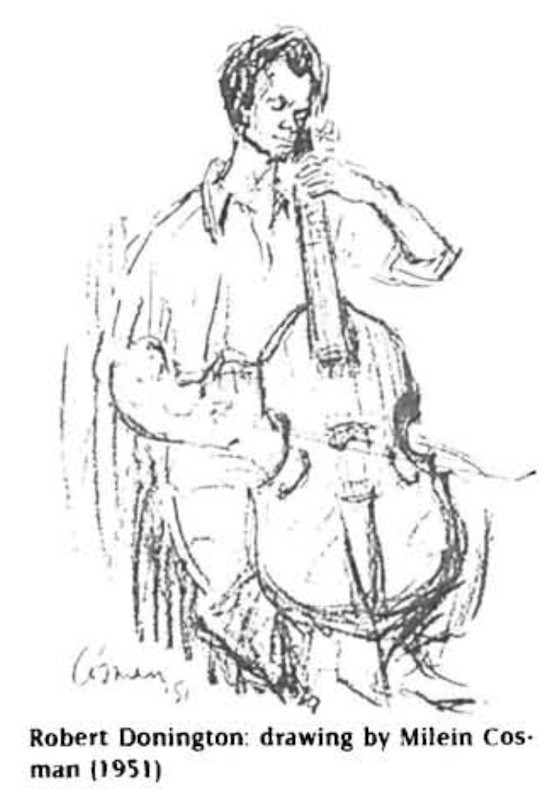Robert Donington
Настоящее имя: Robert Donington
Об исполнителе:
Robert Donington (4 May 1907, Leeds — 20 January 1990, Firle, Sussex) was a British musicologist, violist, and music historian, one of The Galpin Society co-founders in 1946, Honorary Member of the Royal Academy of Music (1975), and Officer of the Most Excellent Order of the British Empire, OBE (1979). Donington had primarily lived and worked in the USA between 1961 and mid-1970s and was an active member of the American Musicological Society and Royal Musical Association. Donington attended the St. Paul's School in London (1921 to 1926) and then read classics and studied composition with Egon Wellesz at the University of Oxford, earning his BA degree in 1930. Robert spent a few years in Haslemere, West Surrey, studying with renowned Arnold Dolmetsch (1858—1940), instrument maker and early music scholar. At his workshop, Donington gained direct insight and first-hand experience of the intricate relationship between extant Baroque instruments and original music written for them. Robert trained alongside a few prominent Dolmetsch disciples, including a fellow viola da gamba student, Elizabeth Goble (1907—1981), and harpsichord makers Robert Goble (1903—1991) and John Challis (1907—1974) from Detroit. Robert Donington further studied XVII-century viol music as Leverhulme Research Fellow (1934–36) and, between 1935 and 1939, performed with the English Consort Of Viols ensemble. In 1946, Donington earned his Bachelor of Letters degree from Oxford. He established and directed the Donington Consort from 1956 to 1961 and performed with the London Consort. Robert had a cameo appearance as a viol player in John Boulting's 1957 film "Lucky Jim." In 1961, Robert Donington participated in the Carmel Bach Festival in California, spending most of the following two decades in the United States. He joined the University Of Pittsburgh's faculty as "Andrew Mellon Visiting Professor," where Robert met his wife, musicologist Gloria Rose (1933—1974). In the next five years, Donington traveled across the country, lecturing and giving bass viol recitals at The University Of Washington, Seattle, Stanford University, University Of Southern California, Rutgers University, City University Of New York, SUNY Buffalo, Yale University, and Southern Methodist University. Between 1966 and 1973, Robert Donington was a professor at the University of Iowa. Despite such a prolific academic career in the USA, he never held a tenure or even an associate teaching position back home in England. Donington wrote many influential books, including his monumental reference manual, "Interpretation of Early Music" (1963), which Julie Anne Sadie described in Robert's obituary in the Early Music journal as a "beacon of enlightenment for subsequent generations of musicians concerned with the performance of early music," and "Wagner's Ring and its Symbols" (63), an authoritative Jungian analysis of Richard Wagner's Der Ring des Nibelungen opera cycle. In 1977, Robert published the "15433222," with audio examples by Yehudi Menuhin and George Malcolm on the accompanying LP. As a researcher and historian, Robert Donington specialized in Monteverdi, Purcell, Strauss, and Tippett.

